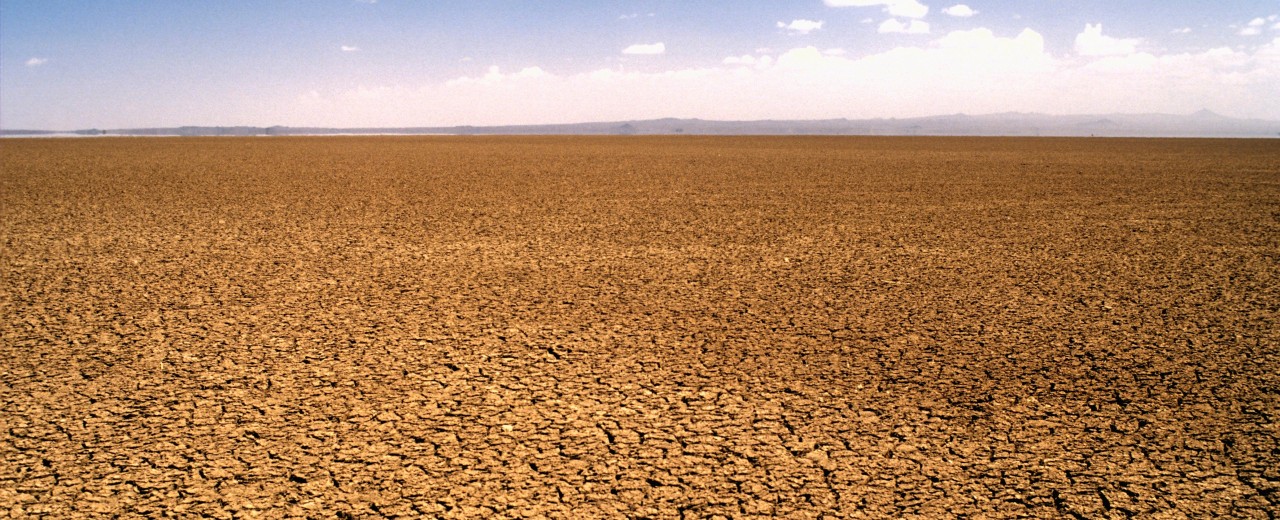
Livestock herders’ pastures in Ethiopia’s lowlands are becoming increasingly scarce because they are being overrun by an invasive plant. The soil of the remaining pastures is overused and depleted. At the same time, periods of drought are becoming longer, the pastoralists’ food supply is at risk, and hunger is imminent. On behalf of the German Federal Government and in cooperation with the Ministry of Agriculture in Ethiopia, KfW is financing three projects with more than EUR 25 million to recover pasture land and manage it sustainably in the future.
The pastoralists of the Afar people in Ethiopia are finding less and less space to graze their cattle. A tree species introduced from South America in the early 1980s, the Prosopis juliflora, is spreading extensively and quickly over former pastures. The thorny bush is densely strewn, which the cattle cannot penetrate. It deprives other plants of sun and water while coping well with the barren living conditions of the dry savannah itself. Its adaptability is what makes the Prosopis, a member of the Fabaceae family, so dangerous. More than 1 million hectares of usable land are now overgrown.
The semi-nomadic livestock farmers in the Afar region of Ethiopia – one of the hottest areas in the world – have lost more and more pasture land to the rampant vegetation in recent decades. At the same time, droughts as a result of climate change last longer, heavy rainfall and flooding occur much more frequently than in the past; the soil erodes. In addition, the population is increasing, fields are replacing pastures, and conflicts over the scarce resources such as water and pasture areas are also increasing. Hunger is now spreading on the Horn of Africa, and food is also scarce in Ethiopia. The country is facing the worst drought crisis in 40 years. Prices for food and energy are exploding due to the war in Ukraine.
The Afar people’s traditional way of life is reaching its limits. It is becoming increasingly difficult to keep large herds of cattle. Pastures were overused, which in turn made it easier for the Prosopis to spread across the nearly bare soil. Using hoes and axes to deal with the plants is futile because they regenerate from the roots. Huge bulldozers – specially built for this purpose in the USA and proven machines – are now arriving to clear the areas. They use their blades to tear out the Prosopis and push it together in large piles. Deep ploughs are attached to the rear of the machines, which cut the roots of the Prosopis half a metre below ground.
On behalf of the German Federal Ministry for Economic Cooperation and Development (BMZ), KfW has funded the acquisition of bulldozers, each costing EUR 400,000. It also supports the training of local drivers who are learning how to drive and maintain the heavy machinery. In a first phase, more than 900 hectares of former pasture land were freed from the annoying intruder. Seeds of native grass species were then spread on the cleared areas.
The aim is to sustainably manage the newly created pastures in the future. In order to compensate for losses in periods of drought, the Afar people traditionally keep a large number of camels, cattle and goats. Plans for a sustainable pasture management system were therefore drawn up together with the communities.
The Afar people use the cleared Prosopis to produce charcoal and sell it at a good price. This means that 13,000 households can be supplied with fuel. The Ethiopian state has granted the Afar people a special permit for the charcoal production, which is prohibited in the rest of the country for climate protection reasons. Discussions about other ways of using the biomass are also now underway.
In addition, small-scale irrigation systems are being rehabilitated as part of Financial Cooperation. The families involved were given the opportunity to water two to three hectares of land to improve the growth of feed and food crops. The measures assist the Afar people in preserving their livelihoods even under changing climate conditions and increasing their food security.
However, the security situation on the ground, among other things, is a recurring problem and affects the effectiveness of the measures. For example, the vehicles could only be used in safe areas. In a direct follow-up project aimed at improving the water infrastructure in the drought-stricken region, funding even had to be cut as a result of delays.
Such setbacks, however, by no means mean the abandonment of the project. Instead, the experience gained is to be used to better respond to the situation on the ground in the future. In a second phase, which has been running since May 2023, both the availability of water and the improvement of pastures are being looked at.
Share page
To share the content of this page with your network, click on one of the icons below.
Note on data protection: When you share content, your personal data is transferred to the selected network.
Data protection
Alternatively, you can also copy the short link: https://www.kfw-entwicklungsbank.de/s/enzBY0Jb
Copy link Link copied